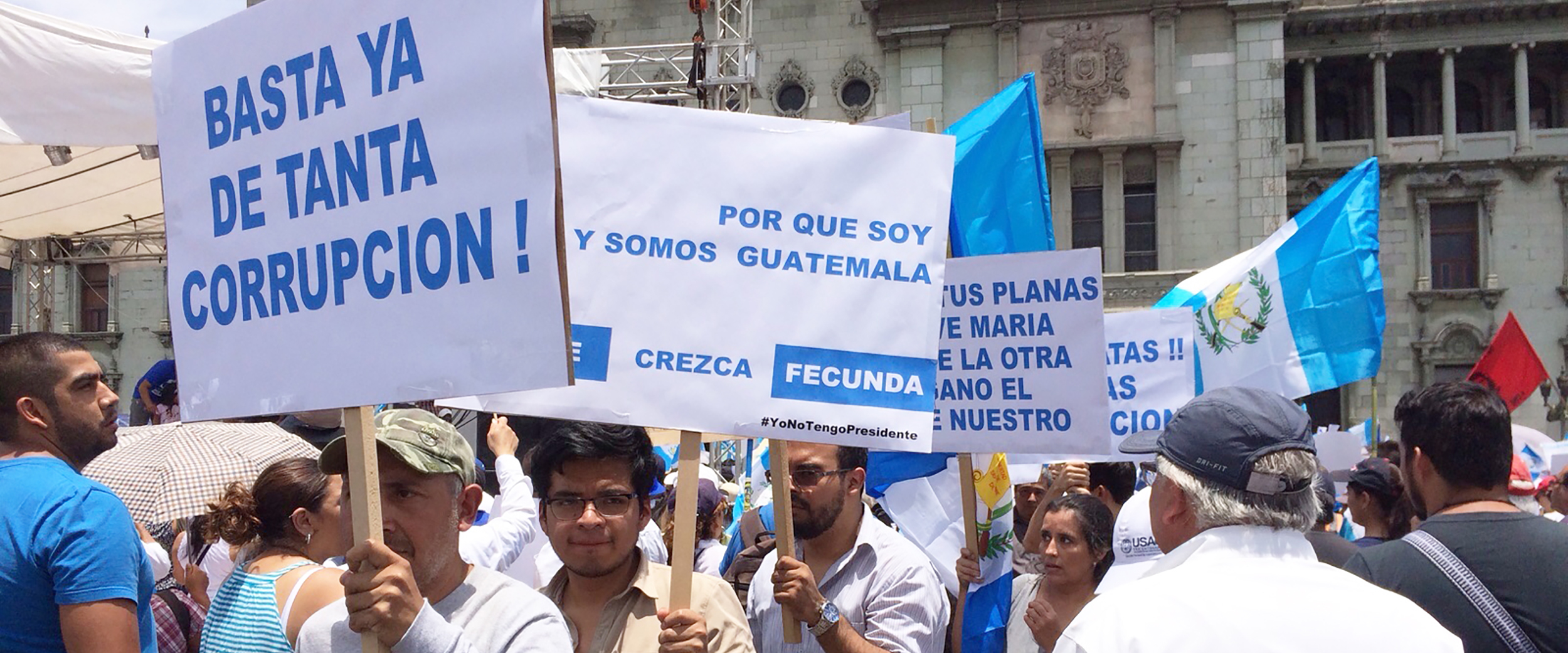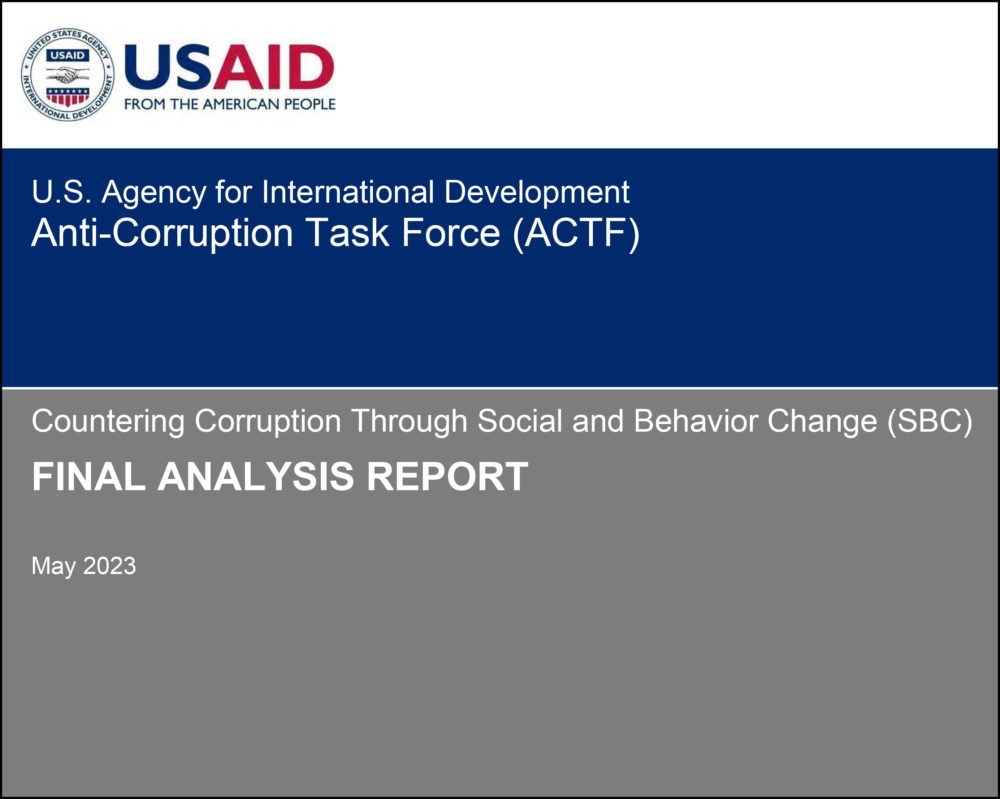
Countering Corruption Through Social and Behavior Change

Countering Corruption Through Social and Behavior Change
This final report presents the findings and recommendations produced through five case studies of anti-corruption initiatives that utilized some SBC approaches or elements.
Corruption negatively impacts millions of lives across the globe. Petty corruption, such as bribery or cronyism, erodes trust in basic services and institutions, while large-scale kleptocracy steals public resources meant to deliver critical services to communities in need. Corruption impacts the delivery of health care, the safety of infrastructure, the livelihoods of families, and access to justice. Fighting it is key to strengthening democratic institutions, advancing equity, and building trust in our leadership and our community. Too often, anti-corruption efforts focus exclusively on technical and policy solutions without addressing the social norms, dominant narratives, and enabling environments that allow it to flourish. Can applying social and behavior change (SBC) approaches to anti-corruption work make a difference?
SBC is a social impact methodology that addresses the factors (norms, mindsets, narratives, institutional culture, etc.) that drive or enable behaviors at the individual, community, and/or societal levels. SBC interventions have increasingly gained ground as tools to impact policies, practices, behaviors, and social norms related to public health, gender-based violence, and other key issues—however, they have not been widely employed in anti-corruption efforts to date. As a result, few large-scale anti-corruption initiatives have been informed by SBC insights—partly due to a lack of evidence on the effectiveness of SBC approaches for these efforts.
The United States Agency for International Development (USAID) established the Anti-Corruption Task Force in 2021 to address a core national security priority: countering corruption around the globe. As part of its efforts to update and develop strategic, technical, and policy guidance on countering corruption, USAID ACTF commissioned Metropolitan Group to conduct research on the use of SBC approaches to address social norms and behaviors related to corruption, and develop recommendations on how SBC approaches might be used to improve current and future anti-corruption activities.
MG’s final report, “Countering Corruption Through Social and Behavior Change,” presents the findings identified through five case studies of anti-corruption initiatives that utilized some SBC approaches or elements:
- The International Commission Against Impunity in Guatemala (Guatemala)
- The Construction Transparency Initiative (Malawi)
- The Anti-Impunity and Gender Equality Initiative (Mexico)
- Maia Sandu and the Party of Action and Solidarity (PAS) (Moldova)
- Addressing Bribery in the Health Sector (Tanzania)
MG found that the use of SBC to change behaviors, attitudes, and norms related to corruption is still a nascent approach and is often poorly understood and underutilized. There is an opportunity to demystify this approach among anti-corruption implementers and partners to help them identify where they are already utilizing SBC elements, where more robust elements and approaches may be appropriate or useful, and how to analyze these impacts on key norms and behaviors.
MG’s final report explores how the use of specific approaches such as deep stakeholder engagement and power mapping, identification of values and decision drivers, trusted messenger activation, social nudges, or the use of hope-based narratives impacts anti-corruption efforts. It also identifies gaps and opportunities to build, test, and evaluate effective models and increase the evidence available to the field.
If you would like to discuss this report, share other case studies, and learn more about how SBC, anti-corruption, and other democracy strengthening efforts might intersect, please email us at SBC@metgroup.com. Our final analysis report is also supplemented by a shorter executive summary, and a brief visual two-pager.